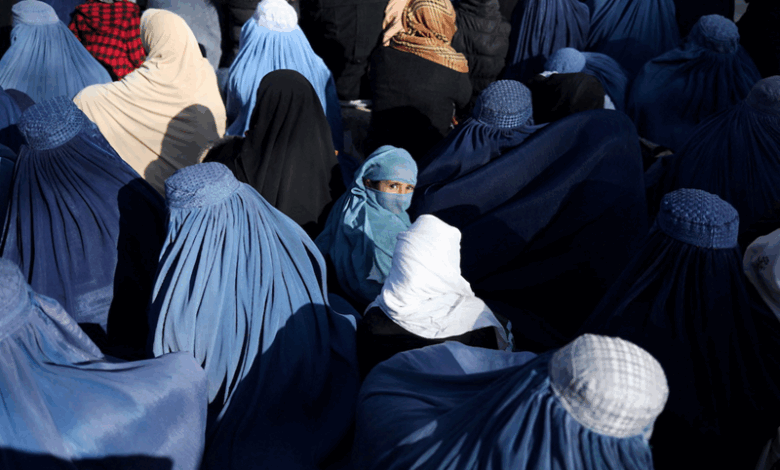Afghan Women’s Subtle Uprising Against the Taliban
News Mania Desk / Piyal Chatterjee / 6th May 2025

Since the Taliban regained control in Afghanistan in 2021, women’s rights have faced significant regression. The Taliban has severely limited women’s access to education, eliminated their roles in public life, and restricted even their fundamental right to travel alone. Despite worldwide denunciation of this mistreatment, substantial assistance for Afghan women has continued to be hard to come by. This compels them to conduct their struggle in relative solitude.
Despite such oppressive circumstances, Afghan women continue to resist passively. Rather, they discover brave and creative methods to fight back, providing hope for future generations of not just Afghan women, but women everywhere. Their battle is not just a local concern — it represents the struggle for women’s rights in authoritarian regimes worldwide.
The fundamentalist Taliban government has thoroughly and systematically destroyed the hard-earned rights of women. Following the 2021 takeover, the condition of Afghan women’s rights has reverted to levels seen before 2002, when the Taliban last ruled the nation. Two decades of advancements in human rights vanished in an instant.
By early 2023, the Taliban prohibited girls from attending secondary schools and universities, resulting in 1.1 million young women losing access to formal education. The regime also prohibited women from most types of jobs, allowing only in very limited areas like healthcare. The social and economic effects of these policy implementations have devastated families and driven them — particularly young women — deeper into poverty and hardship.
However, Afghan women have reacted to these injustices with bravery and resolve. They will not be quieted.
In opposition to Taliban prohibitions, underground schools have emerged as powerful emblems of women’s resistance. These secret classrooms are operated by volunteer instructors who teach Afghan girls despite the threat of harsh consequences. These secret educational initiatives take place in private residences and concealed sites. They instruct in math, science, and literature, while continuously facing the looming threat of Taliban monitoring. For numerous girls, these temporary schools signify not only chances for education but also a reminder of their fundamental rights to acquire knowledge and influence their futures.
“Whenever I walk to class, I worry that I might get apprehended,” mentioned a student who goes to an underground school in Kabul. “If my schooling is unlawful, it’s a chance I’m willing to take.”
Afghan women are resisting not just in the area of education. As an additional display of defiance, women have started to spearhead media projects — such as Radio Femme, a station focused on informing Afghan women and promoting their rights — to uplift the oppressed. Radio Femme, broadcasting in Afghanistan’s two official languages, Pashto and Dari, delivers essential information regarding health, education, and women’s legal rights. Although functioning under significant limitations, the station offers Afghan women essential information and a feeling of unity in a setting where their access to knowledge and community has been systematically restricted.
“Our audience consists of women who experience solitude and neglect.” “We provide them with information and convey the message that they are not isolated,” stated Hawa, a former educator who established the station. The women of Radio Femme encounter harassment and threats, but they continue their essential work. They lack any alternative under the oppressive Taliban government.
Social media has emerged as an essential platform for Afghan women to elevate their voices and communicate their experiences globally. They utilize platforms such as X and Instagram to highlight injustices, arrange demonstrations, and engage with worldwide advocates. Their online opposition has successfully heightened awareness, yet it carries considerable risks.
Online harassment, gender-based hate speech, and even threats of death have become routine experiences for Afghan women activists. During the initial year following the Taliban’s resurgence, the Centre for Information Resilience documented a threefold rise in online harassment directed at politically active Afghan women. These women experience a constant feeling of threat — yet they continue to resist.
Afghan women persist in opposing oppression, yet they cannot struggle alone. The global community needs to take action, irrespective of previous difficulties in addressing the Taliban. Following the Taliban’s resurgence, the United Nations has provided $2.9 billion in humanitarian assistance to Afghanistan, with the United States being a major donor. Nonetheless, reports indicate that a significant portion of this assistance has found its way into the hands of the Taliban — providing minimal support to Afghan women.
The reduction of US aid programs has only intensified the situation for Afghan women. The disbanding of USAID puts initiatives like covert schools, independent media such as Zan Times, and women-led projects in jeopardy of vanishing completely.
People and organizations around the globe need to resist policies that endanger the survival of Afghan women, such as the elimination of USAID. Organizations such as UN Women, Women for Afghan Women, and RAWA play a vital role in making sure resources are directed to grassroots initiatives that offer education, shelter, and healthcare. Public pressure is also vital — encouraging policymakers to safeguard current aid initiatives, focus on Afghan women in refugee resettlement, and implement stricter oversight can aid in preventing additional harm.
Global assistance should be accompanied by specific criteria. Resources ought to be redirected towards underground schools, initiatives led by women, and validated humanitarian efforts instead of being funneled into Taliban-controlled avenues. The removal of USAID programs requires an immediate reaction to avert the breakdown of essential support systems.
Policymakers react to public demand, diplomatic influence, and media oversight. Guaranteeing that assistance gets to those in greatest need demands legal responsibility, targeted financing, and steadfast support. In the absence of these protections, Afghan women will keep being systematically marginalized from the assistance designed to safeguard them.






